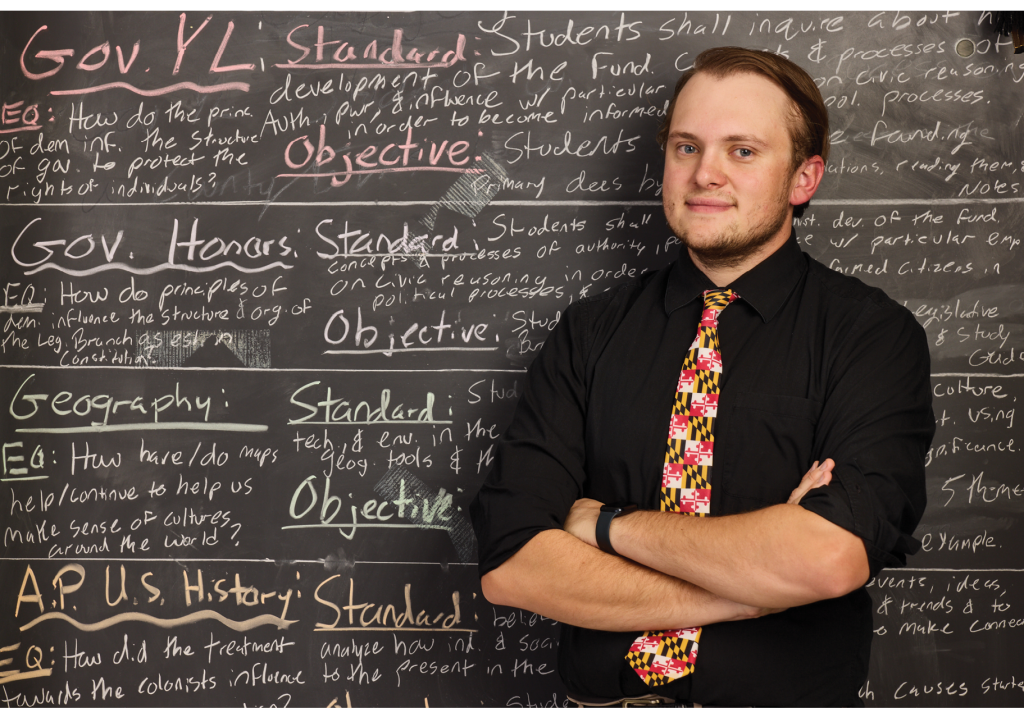Teacher’s Toolkit
Randy Laird, Somerset County Social Studies Teacher

Randy Laird is a social studies teacher at his alma mater Crisfield High School in Somerset County. He’s also advisor to the senior class and National Honor Society. He’s devoted to his community and wants his students to be, too. “If there’s one thing I want students to know when they leave my classroom and the clubs that I advise,” Randy says, “is that every little bit we do in the community counts and we can all do our part to make this place better.”
See what makes Randy’s practice special!
OPPORTUNITIES TO LEARN After every unit test or mid-unit quiz, I return the tests to the students, and we review the correct answers. We learn most from our mistakes, so I give students the opportunity to correct their missed questions for a half-credit back.
STUDENT-CREATED LEARNING Peer-to-peer learning is a valuable resource, which is why I offer multiple opportunities throughout the year for students to lead instruction on certain topics. For example, my government classes broke into groups to create a slideshow on one of the Maryland landmark Supreme Court cases. They created a guided notes sheet for their peers based on their slides and presented this to the class followed up by a multiple-choice review using Gimkit.
A COMMUNITY INVOLVEMENT MINDSET As the National Honor Society and senior class advisor for the school, I find year-round community building and service activities. This year we prepared Thanksgiving baskets for families in need, created and distributed Christmas cards to members in a nursing home, sponsored a blood drive, and more. When we participate as members of our school family, we better our community and, as a big bonus, get to know each other better.
FIELD TRIPS I’m a fan of hands-on learning, but during the pandemic opportunities were very limited. Now it’s my goal to have at least one educational field trip for each of my four different classes. In A.P. U.S. history students visited Mount Vernon. My government classes will tour the Maryland State House, watch the legislature in session, and meet our state senator. For geography, we visited the NAO Trinidad replica ship to learn about early exploration. And in contemporary issues, we’re planning a trip to the Smithsonian’s National Museum of American History.
REAL-LIFE RELEVANCE Students struggle to understand the importance of a particular topic if they can’t relate to it. I recently completed a simulation based on primary and caucus voting practices. To avoid conflict with present-day issues, I substituted the Marvel and DC comics parties for the Democratic and Republican parties. Students were either members of the DC or Marvel party and they had to simulate their vote in closed or open primaries and caucuses. This allowed for students to understand how they can differ in opinions but remain civil.
ONE-ON-ONE CONFERENCES During independent work once a week I pull each student aside to survey them on topics that we recently completed and that will appear on the MCAP government test. When I can discuss these topics with them independently, there’s no peer pressure and I know better how I can help.
NOTES BINDER To organize what they’re learning, students organize their notes in a binder with a table of contents. The binder is worth an easy project grade and is a great study guide to help prep them for tests and quizzes.

